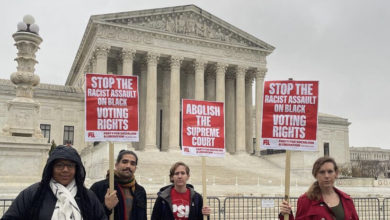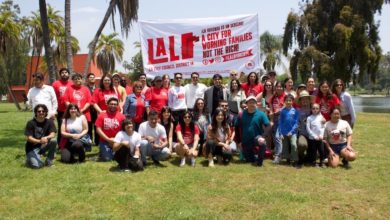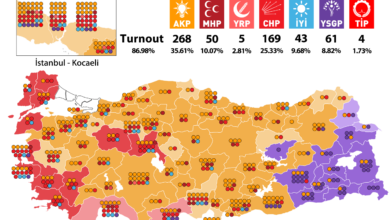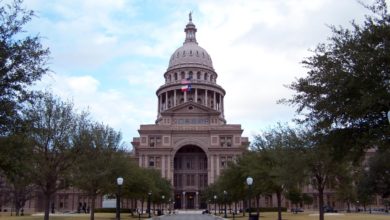After the general elections held on June 7 in Turkey, the ruling Justice and Development Party (AKP) lost its absolute majority in parliament after 13 years in the government. This was a huge setback for AKP, which is led by President Tayyip Erdogan. The other highlight of the election results was the entry of the Peoples’ Democratic Party (HDP) into parliament after clearing the 10 percent electoral threshold. HDP, a predominantly Kurdish party, ran a campaign with an all-embracing “left” rhetoric, reminiscent of SYRIZA of Greece or Podemos of Spain, in an effort to position itself as the opposition party not exclusively for the Kurds but for all people of Turkey. In this electoral campaign, HDP managed to bring together a broad coalition of groups within its ranks, from genuine revolutionary elements, pure Kurdish nationalists, environmentalists, liberals, LGBTQ activists and secular Turks to reactionary political Islamists.
What are the results of the elections? While the AKP is clearly weakened having lost its absolute majority, it is also important to note the temporary muffling of the energy with a revolutionary potential that had dominated the streets in the past years starting with the Gezi uprising as that energy has been channeled into reformist electoral channels.
With a loss of 9 percent compared to the previous general election in 2011, AKP got about 41 percent of the votes, translating to 258 seats in the 550-seat parliament. The Kemalist main opposition, Republican People’s Party (CHP) got 25 percent of the vote, taking 132 seats. The ultra-right Nationalist Movement Party (MHP) stood at 16.3 percent with 80 seats. The HDP cleared the electoral threshold necessary to enter the parliament, receiving over 13 percent, winning 80 seats. This is the first time a Kurdish party has participated in the elections nationally, as opposed to fielding independent candidates from the mainly Kurdish cities in southeastern Turkey.
The extremely undemocratic electoral threshold is a remnant of the fascist 1980 military coup, put in place to keep the radical left and Kurdish parties out of parliament. Essentially, the threshold rule translates those votes for the parties under the threshold into seats for the party receiving the majority of votes. AKP benefited greatly from this in the previous general elections, claiming over 60 percent of the seats in the parliament while only receiving between 40 and 50 percent of the popular vote. HDP’s entry into the parliament, coupled with the decline in AKP votes resulted in the drop in AKP’s seats from 327 to 258, costing them the absolute majority and the government.
President Erdogan engages in the electoral campaign, violating the Constitution
In the run up to the elections, the president openly campaigned for AKP, violating the Constitution, which dictates that the president stay neutral and not engage in party politics. Through his involvement, he was hoping that AKP would get a two-thirds’ majority in the parliament, enough to change the Constitution to give him executive powers as president, constitutionally legalizing his corrupt, brutal dictatorship.
Erdogan attempted to consolidate support from the reactionary and right-wing sectors of the population with his racist anti-Kurdish rhetoric. He accused HDP members of terrorism, alluding to their link with the illegal PKK (Kurdistan Workers’ Party), which has waged a 30-year insurgency in Turkey and is designated a terror group by the U.S. government and NATO.
There were dozens of attacks on HDP offices, but the provocations went further when two bombs exploded at a massive HDP rally in the Kurdish city of Diyarbakir, two days before the election, killing three and wounding over 180. Erdogan and other AKP officials’ anti-Kurdish rhetoric during the electoral campaign might have acted as the fuel for these provocations in an attempt to get the Kurdish people to respond back. This in turn would have benefited AKP’s scare-tactics aimed at convincing the masses that if AKP lost the government, there would be a return back to the “days of instability and terror.” It is also possible that these provocations helped move some of the undecided voters from CHP to HDP as they were now convinced of the urgency of the need for HDP’s entry into parliament. According to HDP co-chair Selahattin Demirtaş, the attacks on HDP offices as well as the bombs in Diyarbakir were connected to ISIS. According to the latest news from the media, the suspect that has been under arrest for the bombings is indeed an ISIS fighter of Turkish origin with ties to Syria. For information on AKP’s role in supporting ISIS, please see here.
Ongoing coalition discussions
Given the distribution of seats in the new parliament, no party is able to form a majority government, which leaves two options: Formation of a coalition government or early elections if the parliament fails to form a government within 45 days. AKP would not prefer an early election as that would most likely result in a further decline in its votes. They would be willing to enter a coalition if possible.
Before the elections, while the ultra-right party MHP claimed they would be against a coalition with AKP, an AKP-MHP right-wing ‘national-front’ is a likely possibility. In fact, speaking after the elections, vice-chairman of the rabidly anti-Kurdish MHP, Sadir Durmaz, did not rule out AKP as a potential coalition partner. He said, “Our red lines for a coalition are: The peace-process with the Kurds has to be abandoned, the president has to go back to the role limited by the Constitution and all the past corruption incidents will be fully investigated.”
Another scenario is an AKP-CHP coalition. This would be the most suitable choice for the capitalist class in Turkey as well as international capital, both in the economic and political sense. While keeping AKP’s ultra-exploitative economic measures intact, by neutralizing Erdogan into a symbolic figurehead, it would also minimize the risk of a massive social upheaval such as the Gezi uprising in 2013. It would be a win-win scenario.
Two days after the election, Erdogan indeed met with CHP’s previous chair, Deniz Baykal. (Erdogan and Baykal pictured above following their meeting.) As an irony of bourgeois politics, Baykal had to resign as the head of CHP in 2010 after the release of a videotape showing him having an affair with a female party deputy, after declaring it “a conspiracy against him” by the AKP government.
Speaking after the meeting, Baykal noted that Erdogan was open to the idea of a coalition. He also stressed the importance of finding a solution that would bring stability as soon as possible. He added, “Given that HDP and MHP declared they would not come together in a coalition, a coalition without AKP is not possible.”
HDP co-chair Selahattin Demirtaş also pointed in the AKP-CHP direction. He said: “We will not allow chaos, tensions and instability in Turkey. We are clear about one thing, we will not be in a coalition with AKP. The population has indeed assigned a duty to the two parties that came out first and second in the elections. … CHP should consider the possibility of a coalition in order to not leave Turkey without a government. A discussion of an AKP-CHP coalition should be the first to take place, in accordance with the political traditions. CHP should not evade the responsibility.”
Responding to a question on how HDP would act in case an AKP-CHP coalition does not materialize, Demirtaş said: “All options can be evaluated in due course. We will not enter a coalition with AKP. However, in order to not cause any instability in Turkey, we will do our utmost, including lending support to a minority government.”
TÜSİAD’s board of directors also released a statement after the elections. TÜSİAD represents the traditional, secular block within the capitalist class of Turkey. During its 12-year reign, AKP and TÜSİAD often butted heads as AKP favored a group of burgeoning “Islamic” capitalists within the close circle of Erdogan. This new sector within the capitalist class was enriched beyond limits thanks to the ruthless neo-liberal policies instituted by AKP, coupled with an unprecedented level of corruption channeling public funds into private hands via mega-construction projects including luxury residences, Erdoğan’s own extremely lavish, but ugly, presidential palace at a cost of more than $500 million dollars, mega-malls, airports, dams, and so on.
The statement by TÜSİAD stressed the need for all political parties to promote a “culture of reconciliation” as the precondition of democracy and to come together around the interests of the country. It is obvious that the “ interests of the country” TÜSİAD refers to are really the interests of the capitalist class.
A political chorus is heard, made up of all the bourgeois parties all over the political spectrum, from AKP and MHP to CHP and HDP, calling for stability, reconciliation, normalization, the need to fulfill responsibilities … ongoing discussions for various coalition combinations with AKP, which simply helps whitewash the 12-year reactionary and criminal rule of the AKP regime.
Let us be clear: It is a welcome development that HDP passed the 10 percent threshold to get in parliament. That AKP cannot form a government on its own and that Erdogan will not be able to legitimize his murderous dictatorship are also welcome developments.
All these developments should not stop us from asking and seeking answers to the following questions, however, especially given that AKP will not be able to form a majority government:
- Will justice be served for all those who were brutally repressed by AKP’s police during the Gezi uprising in 2013, in which eight people were killed and thousands wounded? Erdogan had commented then that he had personally given the order to the police to shoot. Will all the responsible parties be put on trial?
- Having provided shelter, arms and financial support to the extremist Sunni jihadist groups fighting in Syria, including ISIS, AKP officials have the blood of thousands of Syrians on their hands. Will they be put on trial for war crimes?
- According to AKP’s own labor minister, between 2002 and 2013, over 13,500 workers lost their lives in mines, construction sites and other workplaces, mainly due to lack of safety measures as the bosses took shortcuts to maximize their profits. During their rule, AKP has put into effect cutthroat neo-liberal policies characterized by the ruthless privatization of all national resources, state-owned enterprises, coupled with a massive attack on workers’ rights and unions and the institutionalization of subcontracting jobs, resulting in the super-exploitation of workers in work conditions reminiscent of the 19th century. Will all the capitalist bosses and AKP officials who are responsible for the workers’ deaths be put behind bars?
- How about the massive corruption scandal that was exposed last year? Hundreds of millions of dollars were embezzled in this massive scandal exposed last year. Most of the AKP leadership including Tayyip Erdogan and his family were implicated in that scandal. Will the new government bring all thieves, whoever they are, to justice?
These are a few immediate questions that come to mind that any new government, however it is formed, will have to answer.
Let us turn to HDP co-chair Demirtaş, for answers. His recent comments on the position of HDP going forward regarding the president may give us some clues:
“We have been criticizing AKP for the mistakes it has made in the past. If they correct those mistakes, we are ready to move forward together. We are ready to move forward with the ‘peace process’, for the new Constitution. …” He added: “We take dialogue in politics seriously. … We don’t have a personal animosity or position against Mr. Erdogan. A president that violates the Constitution will be criticized by us. … A president that clears the path for politics, however, will be supported.”
The reality is that even if a coalition including both CHP and HDP, the left within the system, were somehow formed, any reformist conceptions within the bourgeois parliamentary system would not be able to resolve the profound problems inherent to the capitalist system itself but only delay the eventual unfolding of the crisis brewing under the surface.
This was also reflected in the post-election statement released by the Communist Party, the only revolutionary force that participated in the elections, retaining an independent position on the side of the working class:
“Poverty and unemployment in Turkey is on the rise, deep social inequalities being the determinant factor affecting our lives. It is only a matter of time before the regional conflicts triggered by the imperialist plans spread to our country, resulting in a bloodbath. No one can claim that the votes received by HDP will somehow solve the Kurdish problems by itself. The religionization of the political and social life will continue to create ever-growing problems in all our lives. None of the political actors within the system have proposed any real solutions for any of these issues. Naturally, the results of the elections are far from providing any hope for solution.”
Turkey experienced a massive popular uprising in June 2013. Millions came out on the streets for weeks, battling the extreme repression of police, expressing their rage against AKP’s reactionary, anti-secular Sunni-sectarian policies coupled with ruthless anti-worker neoliberal measures. Millions demanded an end to AKP’s rule, with the slogan “Down with the dictator” being the most popular of all. If the movement had been a politically organized one, it had the potential to uproot the whole system, not just force AKP to resign. This was a major crisis that not only sent shock waves within the ruling class of Turkey but also internationally. With three elections following the Gezi uprising (local and presidential elections in 2014 and the recent general election), the ruling class has been able to manage the crisis unleashed by Gezi and has been able to divert the street energy of that uprising into the ballot box and contain it … so far.
We say “so far” as it would not take much for anyone to see that the recent militant and massive protests on May Day all over Turkey, the recent strikes in the automotive industry attended by thousands of workers, an overall fragile super-exploitative economy that has been artificially sustained mainly by the construction sector, an unemployment rate over 11 percent (over 20 percent for young people), the ever-increasing income inequality, the extremely unstable international situation in the region, in Syria and Ukraine, all these factors make the chances of a political and economic normalization in Turkey highly unlikely.
The struggle for equality, freedom and justice in Turkey is far from over. On the contrary, one can say that it is starting afresh.
Ultimately, it will be a working-class revolution led by revolutionary forces like the Communist Party that achieves true equality, freedom for the working class and establishes real peace between all peoples of Turkey, including the Kurdish, while also bringing to justice the criminal gang, aka AKP, and the bosses it represents.






